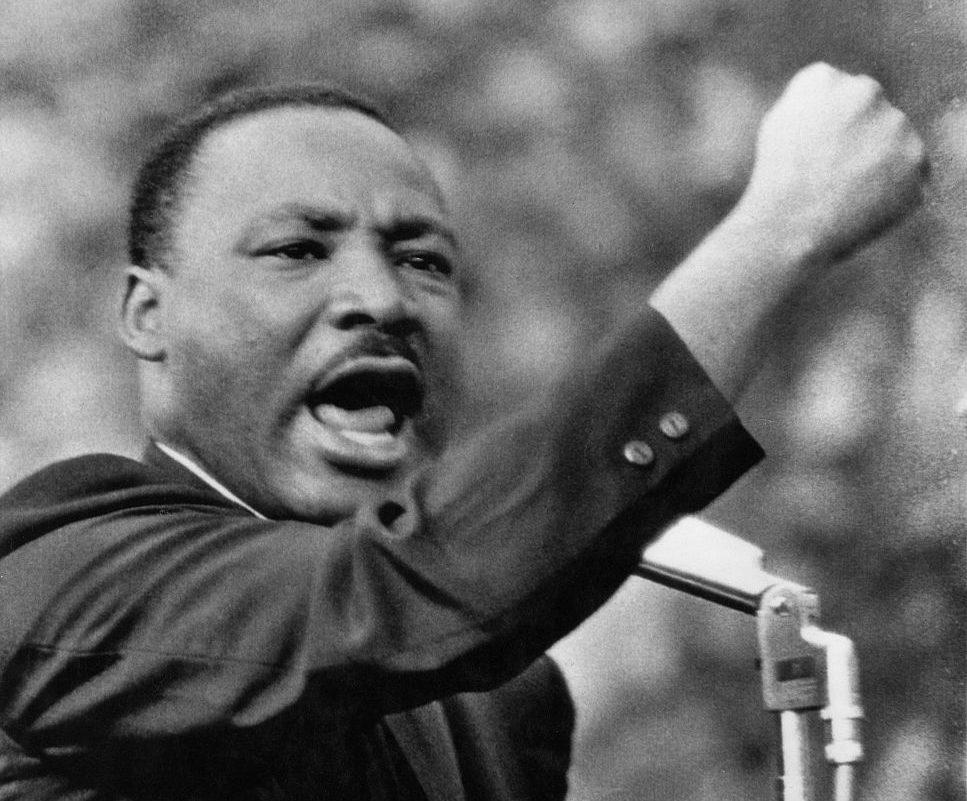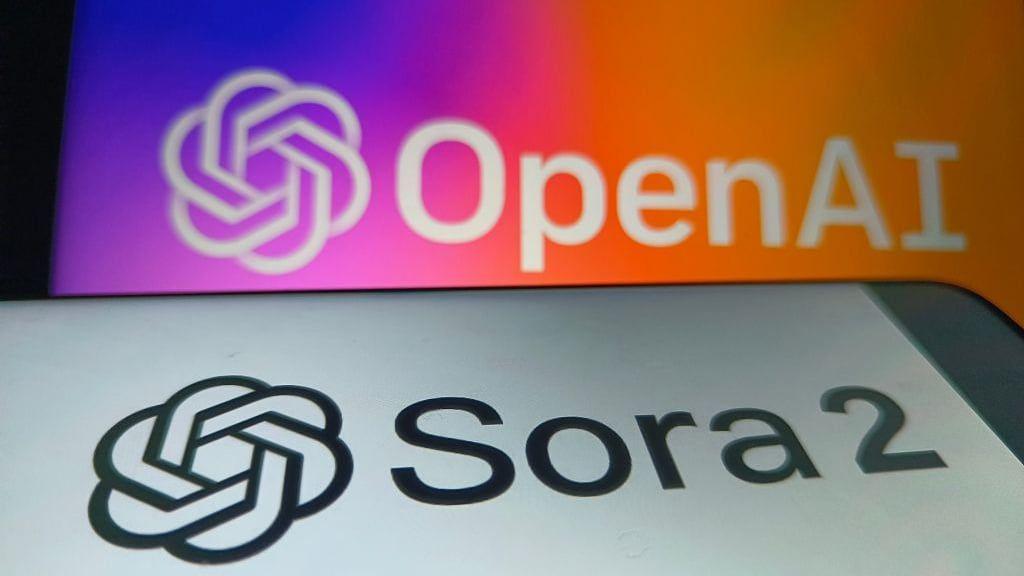OpenAI's Sora Video Generator Launches in UK, Sparking Creativity and Copyright Concerns
2 Sources
2 Sources
[1]
Sora, OpenAI's video generator, has hit the UK. It's obvious why creatives are worried
The technology, just released in Europe and the UK, clearly has the potential to transform the film, TV and advertising industries If you want to know why Tyler Perry put an $800m (£635m) expansion of his studio complex on hold, type "two people in a living room in the mountains" into OpenAI's video generation tool. The result from artificial intelligence-powered Sora, which was released in the UK and Europe on Friday, indicates why the US TV and film mogul paused his plans. Perry said last year after seeing previews of Sora that if he wanted to produce that mountain shot, he may not need to build sets on location or on his lot. "I can sit in an office and do this with a computer, which is shocking to me," he said. The result from a simple text prompt is only five seconds long - you can go to up to 20 seconds and also stitch together much longer videos from the tool - and the "actors" display tell-tale problems with their hands (a common problem with AI tools). But the mountain backdrop, and the cosy interiors, are convincing and it only took 45 seconds to make after the text prompt was entered. The technology will also improve. In order to access Sora users need to have a paid-for package with ChatGPT, but it is an indication of where video-generating technology is heading in the rapidly evolving AI market. It also underlines why the row over copyright has reached red-hot levels on both sides of the Atlantic. It is obvious that video generation tools such as Sora, Kling and Runway have the potential to transform the film, TV and advertising industries. One of the UK digital artists who has experimented with the tool, Josephine Miller, told the Guardian it has expanded opportunities for "younger creatives" and she is already using it to pitch advertising concepts to brands. OpenAI says creatives and studios in locations where Sora is already available, such as in the US, have been using it to produce film and advertising concepts and pitches. David Jones, the chief executive of Brandtech Group, an advertising startup using generative AI to create marketing campaigns, says there is going to be "tectonic disruption" of the advertising and marketing industries due to tools such as Sora. Jones says this is a "Kodak moment" for his industry, referring to the analogue camera film company that succumbed to the digital revolution. Big advertisers are already embracing AI-made video. Coca-Cola produced an entirely AI-generated Christmas ad last year and the technology's implications were outlined in a pointed tweet from Alex Hirsch, the creator of the Disney-animated series Gravity Falls. "FUN FACT: @CocaCola is 'red' because it's made from the blood of out-of-work artists!" he wrote. The problem of artists losing out to AI has become a key battleground in development of the technology on multiple levels, not least with regard to copyright. AI systems such as Sora and ChatGPT are powered by models that are trained on vast amounts of data culled from the internet. ChatGPT, which was also developed by OpenAI, is the subject of lawsuits claiming the use of artists' work without permission is a breach of copyright. The row deepened in the UK this week over government plans to allow AI firms to use copyrighted work without permission. The creative sector hit back with the release of a silent protest album by 1,000 musicians and an open letter from leading creative figures including Dua Lipa, Sir Tom Stoppard and Sir Paul McCartney warning that the government was on the verge of agreeing a "wholesale giveaway of rights and income from the UK creative sectors to big tech". Sora and its peers are not at the forefront of that row, but they clearly represent a competitive threat to artists who want recompense if their work has been used to create these tools - and their content. YouTube's chief executive warned last year that it would be a breach of the platform's terms of service if OpenAI had used YouTube content to train Sora's model. Reports have already pointed to Sora's apparent familiarity with gaming content. Beeban Kidron, an award-winning film-maker and crossbench peer who has spoken out against the UK government's plans, has told the Guardian that Sora's arrival adds "another layer of urgency" to the debate. Tyler Perry is not the only creative who is concerned.
[2]
OpenAI launches Sora video generation tool in UK amid copyright row
'Sora would not exist without its training data,' said peer Beeban Kidron, citing 'another level of urgency' to debate The artificial intelligence company behind ChatGPT has launched its video generation tool in the UK amid a deepening row between the tech sector and creative industries over copyright. Beeban Kidron, the film director and cross-bench peer, said the introduction of OpenAI's Sora in the UK added "another layer of urgency to the copyright debate", in a week the government faced strong criticism over its plans for letting AI firms use artists' work without permission. San Francisco-based OpenAI is making Sora available to UK users who pay for ChatGPT. The tool stunned film-makers when it was revealed last year, with the film and TV mogul Tyler Perry pausing an $800m (£634m) expansion of his Atlanta studio complex after saying the tool might make building sets or travelling to locations unnecessary. It was launched in the US publicly in December. Users are able to make videos on Sora by typing in simple prompts such as asking for a shot of people walking through "beautiful, snowy Tokyo city" where "gorgeous sakura petals are flying through the wind along with snowflakes". OpenAI announced the UK release as it released examples of Sora's use by artists from across the UK and mainland Europe, where the tool is also being released on Friday. Josephine Miller, a 25-year-old British digital artist, created a two-minute video of models wearing bioluminescent fauna and said the tool would "open a lot more doors for younger creatives". However, Kidron said the launch underlined the importance of the debate over copyright and AI in the UK, which centres on government proposals to let AI firms use copyrighted work to train their models - unless creative professionals opt out of the process. "Comments made by YouTube last year make clear that if copyrighted material was taken without licence to help train Sora it would have breached their terms of service. Sora would not exist without its training data which means it is built on stolen goods. At some point YouTube may want to take action on that," she said. Last year the head of the video platform said it would be a violation of its terms of service if YouTube content had been used to train Sora. However, asked if YouTube clips had been used in this way, Neal Mohan told Bloomberg: "I don't know." The chief executive added: "It does not allow for things like transcripts or video bits to be downloaded, and that is a clear violation of our terms of service." The Guardian reported on Tuesday that ministers were considering offering concessions over copyright to certain creative sectors. Sora also offers users the option to make clips of varying lengths, from five to 20 seconds, which can then be extended to make longer videos. Features include displaying the clip in a variety of aesthetic styles, including "film noir" and "balloon world" where objects are represented as inflatables. Clips can take a minute to generate at a low resolution and four minutes or longer at a higher resolution. A "storyboard" option allows users to tweak the video by editing a more detailed version of the prompt created by the underlying AI model that powers Sora. OpenAI said use of copyrighted material to build Sora complied with copyright law and the tool was built using a wide range of datasets, including publicly available data. The company, which also announced the latest version of ChatGPT on Thursday, admitted last year that it would be impossible to create tools like its groundbreaking chatbot without access to copyrighted material.
Share
Share
Copy Link
OpenAI's Sora, an AI-powered video generation tool, has been released in the UK and Europe, raising concerns about its impact on creative industries and copyright issues.

OpenAI's Sora: A Game-Changer in Video Generation
OpenAI has launched its highly anticipated video generation tool, Sora, in the UK and Europe, marking a significant milestone in AI-powered content creation
1
. This advanced technology allows users to create high-quality video content from simple text prompts, potentially revolutionizing the film, TV, and advertising industries.How Sora Works
Sora generates videos based on text descriptions, with capabilities ranging from 5 to 20-second clips that can be stitched together for longer content
2
. Users can create diverse scenes, from mountain living rooms to snowy Tokyo cityscapes, with various aesthetic styles like "film noir" or "balloon world." While the technology still has some limitations, such as issues with rendering hands, the overall quality and speed of production are impressive.Impact on Creative Industries
The introduction of Sora has sparked both excitement and concern within creative circles. Tyler Perry, a prominent US TV and film mogul, paused an $800 million studio expansion after witnessing Sora's capabilities, recognizing its potential to transform traditional production methods
1
. David Jones, CEO of Brandtech Group, describes this as a "Kodak moment" for the advertising industry, predicting "tectonic disruption" in marketing and content creation1
.Opportunities for Young Creatives
Despite concerns, some artists see potential benefits. Josephine Miller, a 25-year-old British digital artist, believes Sora will "open a lot more doors for younger creatives"
2
. The tool is already being used to pitch advertising concepts to brands and create film and advertising pitches in the US1
.Copyright Concerns and Legal Challenges
The launch of Sora has intensified the ongoing debate over AI and copyright. Critics argue that AI models like Sora are trained on vast amounts of data from the internet, potentially infringing on artists' copyrights
1
. This issue has led to lawsuits against OpenAI's ChatGPT and strong opposition to UK government plans allowing AI firms to use copyrighted work without permission2
.Related Stories
Industry Response and Protests
The creative sector has responded forcefully to these developments. A silent protest album by 1,000 musicians and an open letter from leading figures like Dua Lipa and Sir Paul McCartney have been released to challenge the UK government's proposed copyright policies
1
. YouTube's CEO has warned that using its content to train Sora without permission would violate the platform's terms of service1
.OpenAI's Stance and Future Implications
OpenAI maintains that its use of copyrighted material to build Sora complies with copyright law and that the tool was developed using a wide range of datasets, including publicly available data
2
. However, the company has previously acknowledged the impossibility of creating such tools without access to copyrighted material.As Sora becomes more widely available, its impact on creative industries and copyright law will likely continue to be a subject of intense debate and scrutiny. The technology's potential to democratize video production must be balanced against the rights and livelihoods of traditional content creators.
References
Summarized by
Navi
[1]
Related Stories
Recent Highlights
1
Google Gemini 3.1 Pro doubles reasoning score, beats rivals in key AI benchmarks
Technology

2
Meta strikes up to $100 billion AI chips deal with AMD, could acquire 10% stake in chipmaker
Technology

3
Pentagon threatens Anthropic with supply chain risk label over AI safeguards for military use
Policy and Regulation








